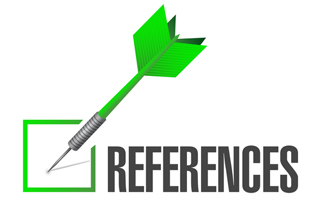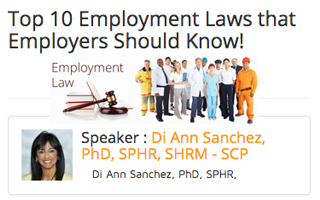


Tired of Gen Y? Here Comes Gen Z!
Various Generational experts have various birth dates for Gen Z but guidance is 1995 to 2015 and more importantly this generation is after Millennials. Research has already shown us that Gen Z differs in many ways from the Gen Y’s. In total Gen Z makes up 26% of the...
New Overtime Regulations from the DOL Wage and Hour Division
Department of Labor’s Wage and Hour Division Fact Sheet:Final Rule to Update the Regulations Defining and Delimiting the Exemption for Executive, Administrative, and Professional Employees(PDF)In 2014, President Obama directed the Department of Labor to update...
Top 10 Mistakes Managers Commit
#1. Making Unlawful Pre-employment InquiriesThat’s an interesting accent you have. Where were you born?Do you have any children? If so, will you have any daycare problems?Action: Watch inappropriate questions during interviews and other pre-employment contexts. When...
Don’t bother calling Coca-Cola or JPMorgan Chase to leave a voicemail!
Imagine your company disconnecting the entire voice mail system. That is what Coca-Cola and JP Morgan Chase did. Furthermore, many other businesses are contemplating the same idea to save money and increase productivity. Verizon reported that 1/3 of office phones had...
Knowing your employees learning styles will increase productivity!
Knowing your employees learning styles will increase productivity!Each employee learns differently, and therefore, organizations need to understand their employees learning styles to increase productivity. So what are the learning styles:Initiating: experimenting with...
What is Cultural Intelligence?
Cultural intelligence: an outsider’s seemingly natural ability to interpret someone’s unfamiliar and ambiguous gestures the way that person’s compatriots would (Earley & Mosakowski, 2004).
Companies also have cultures that are often distinctive. Employees learn how to decipher the cultural code of their company over time through historical stories, environmental clues, geographic regions, meetings, etc. Organizational departments can also have their unique culture as well.
“Cultural intelligence is related to emotional intelligence, but it picks up where emotional intelligence leaves off. A person with high emotional intelligence grasps what makes us human and at the same time what makes each of us different from one another. A person with high cultural intelligence can somehow comprehend a person’s or group’s behavior those features that would be true of all people and all groups, those peculiar to this person or this group, and those that are neither universal nor idiosyncratic (Earley & Masakowski, 2004)”. One critical element that cultural intelligence and emotional intelligence do share is, in psychologist Daniel Goleman’s words, “a propensity to suspend judgment—to think before acting.” People who are somewhat detached from their culture can more easily adopt the mores and even the body language of an unfamiliar host.

Video Recruiting – What is it and why aren’t you doing it?
Video recruiting is the 21st-century method during the hiring process at organizations. Video interviewing take two forms—live conversations between the recruiter or hiring manager and the candidate. Live interviews give hiring managers an opportunity to see and...
Do you ask the right questions during a reference check?
Reference checking is an important step in the hiring process. Organizations that conduct reference checks should tailor questions to the job being filled for and ask open-ended questions. Supervisors of the applicant are the best sources for information on the candidate because of their past daily interaction. Human Resources will only give you information on the date of hire, date of termination and if the applicant is rehireable.
Common questions asked of references include:
- What were the individual’s job responsibilities and salary?
- Was the individual successful in his or her role at your organization? Why or why not?
- What was it like to supervise the person?
- Was the person a valuable member of the team? Why or why not?
- What unique skills did the individual bring to your organization?
- What were his or her strengths?
- What were his or her weaknesses or areas that needed improvement?
- Was the person ever disciplined, and what were the circumstances?
- Do you think the individual is suitable for the job being applied for?
- Why did the person leave your organization?
- Would you rehire the person? Why or why not?

Webinar: Top 10 Employment Laws that Employers Should Know!
Employment law governs the rights and duties between employers and workers. Also referred to as labor law, these rules are primarily designed to keep workers safe and make sure they are treated fairly, although laws are in place to protect employers’ interests as well. Employment laws are based on federal and state constitutions, legislation, administrative rules, and court opinions.
Discrimination in the workplace is another basis for many employment law cases. The Civil Rights Act of 1964 and subsequent legislation makes it illegal to treat workers differently based on ethnicity, religious beliefs, gender, age, or disability.
Employers are required to understand the employment laws that govern their organizations. Several government agencies are involved in compliance of these employment laws.
Date: April 6, 2016
Time: 1:00 pm EST
Duration: 60 minutes
Speaker: Di Ann Sanches, PhD, SPHR, SHRM-SCP
Registration: https://compliance.world/webinars
Register today! Discounts available for multiple attendees!
